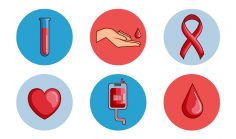Update Chrome Browser
Uncovered: Kidney Cancer Myths
Kidney cancer mostly affects younger people.
MYTH: While some cancers do disproportionally affect younger people – kidney cancer is not one of them. Most people who do get kidney cancer are older, with the average age of diagnosis being 64; it is rare for people younger than 45 to be diagnosed with kidney cancer.







